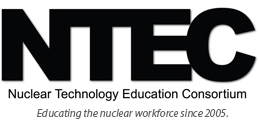N08: Particle Engineering in the Nuclear Industry
This unit aims to:
- Introduce particle technology and its relevance to the nuclear fuel cycle;
- Review particle technology challenges encountered during POCO and decommissioning of legacy nuclear facilities;
- Provide a fundamental understanding on the science underpinning particle behaviour: i) colloid science and ii) suspension rheology;
- Apply your particle technology knowledge to real-world problems encountered in suspension transport and separations;
- Provide a fundamental understanding on the science underpinning powder properties and processing;
- Provide hands-on learning through completion of laboratory experiments studying the re-suspension and transport of nuclear simulants.
Brief description of the unit
The understanding of particulate systems is of great importance to the modern nuclear industry from fuel manufacture, reactor coolant flows and waste management. For example, during the clean-up and decommissioning of nuclear sites particle science challenges are often encountered; no greater challenge than the safe processing and long-term storage of legacy wastes (particle sludges and suspensions). Understanding how particles behave in these systems is fundamental to their performance and an ability to control particle interactions creates opportunity to manipulate the rheology (flow), separation and particle packing in wet and dry systems. This unit introduces methods to characterize particle properties, size, shape, roughness and surface charge, and explains how those properties affect the physical response of bulk fluids (suspensions) and powders. Lectures will be complemented by problem-based learning activities and laboratory practical’s which are designed to validate the theoretical and empirical learning outcomes of the unit. The laboratory practical’s will be conducted in the new flow facilities at the University of Leeds and will use a range of instruments that are typically deployed on nuclear sites.
Intended Learning Outcomes
| Knowledge and understanding: Understand why particle science is important for the nuclear industry; Have an appreciation of available methods for characterising, measuring and modelling particle systems; Have a strong understanding of the basics of particle science. |
| Intellectual skills: Demonstrate an ability to design processing strategies using theoretical and empirical models; Proactively to formulate ideas and hypotheses and to evaluate these. |
| Practical skills: Analysis of, and decision making in, complex unpredictable situations; Report writing skills and an ability to communicate conclusions. |
| Transferable skills and personal qualities: The skills necessary to undertake a higher research degree and/or for employment in a higher capacity in industry or area of professional practice; Self-direction and effective decision making in complex and unpredictable situations; To take a proactive and self-reflective role in working and to develop professional relationships with others. |
